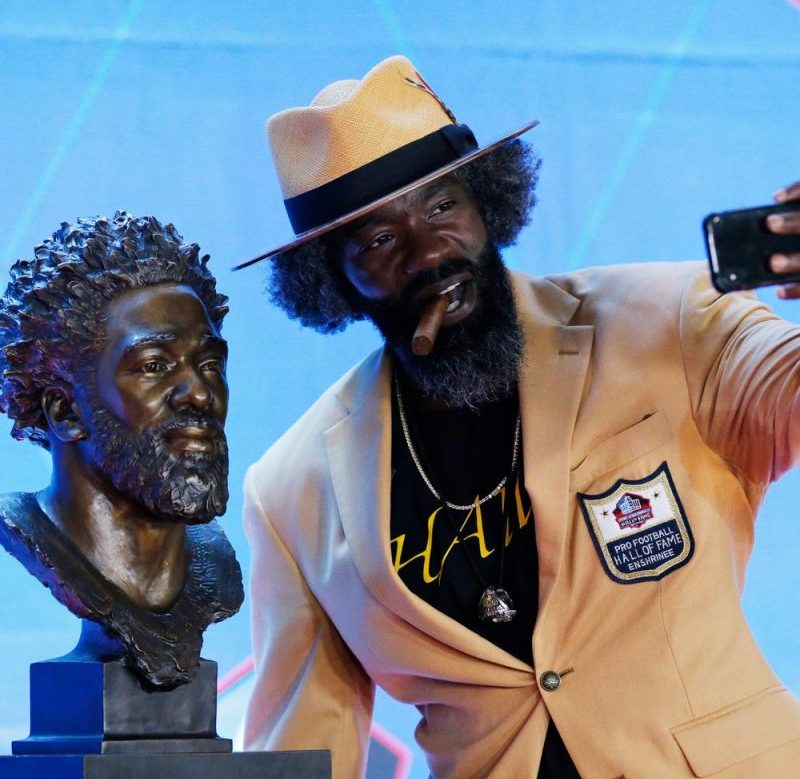If you knew Ed Reed, even for a little bit, his embarrassing 25-day long tenure as head football coach at Bethune-Cookman should come as no surprise. That’s because Reed doesn’t give a damn. Let me explain.
As a Hall of Fame safety, mostly for the Baltimore Ravens, that characteristic worked well. Safeties must have short memories and Reed was notorious – notoriously good – at putting a bad play behind him and then, a few plays later, breaking a game open with a spectacular interception. He could, in a quick second, change the course of a quarter, half, game, season or career. He was that good. He was the best safety I’ve ever seen.
Reed was vicious, brilliant and fearless.
But that not-giving-a-damn isn’t the attitude you necessarily want as a college football coach. In his few weeks at Bethune-Cookman, that trait morphed into something different, as Reed engaged in shaming the university, angering school officials and humiliating himself in the process.
Why is this story important? It shows how HBCU football programs – one of the stalwarts for Black athletic and scholastic brilliance – are still looking for the best way forward. Do HBCUs go the traditional coaching route or do they try and replicate what Deion Sanders did at Jackson State?
Reed has provided another data point in making that determination. Reed showed that HBCUs don’t need saviors or shaming, just coaches, and the celebrity route isn’t always the way to go.
Bethune-Cookman itself is a good example why. It’s named after Mary McLeod Bethune who is, and this is not an overstatement, one of the greatest Americans who ever lived. That historical standard of excellence doesn’t need Ed Reed to save it. It will always live long and prosper.
Earlier this month, not long after Reed was hired, he posted a vulgar rant about the conditions at Bethune-Cookman and HBCUs in general. He later apologized.
“I just pulled up to work,’ he said in one of his videos. ‘We’re going to try to help y’all too man. Because I know a lot of HBCUs need help. I’m just here to help here first. I see it all too clearly. All of our HBCUs need help. And they need help because of the people who’s running it. Broken mentalities out here. I’m going to leave you with that. I gotta get in the office.”
Sanders made an appearance over video as Reed addressed the team. ‘We talked about this,’ Sanders said. ‘We know the structure, we know the order, we knew how it was going to play out and you’ve been there fighting and I know what you’ve been feeling. I know what you’re going through.’
Dr, Jason Johnson, a political scientist and professor at Morgan State University’s School of Global Journalism and Communication, said on the NBC show ‘Brother From Another’ that the comments of both Reed and Sanders are dangerous because they play into the stereotype that HBCUs are failing.
‘Here’s why,’ Johnson said. ‘One, you feed into the overall negative zeitgeist about HBCUs when in fact the story of HBCUs has been improving…you’ve had more HBCUs move into the black, move into solvency, increase HBCU numbers across the country. And I’m not just talking our Ivy (Leagues), I’m not just talking Howard and Spelman and Hampton. I’m talking about Johnson C. Smith, I’m talking about Central (State), I’m talking about Morgan (State) had one of the largest incoming classes the last couple of years. More and more African American students and athletes are recognizing, especially with the NIL, that there are opportunities to be had here.
‘So when you have these prominent athletes who are given a lot of attention, who have millions of social media followers, downing these institutions, claiming these institutions are institutional failures…it hurts fundraising, it hurts recruiting, and it damages the reputation of the school…’
This isn’t to say HBCUs don’t have problems. They do. Reed, however, makes it seem like HBCUs are about to fall off a cliff when that simply isn’t the case.
Reed has had many great moments. He will likely have many more. This was not one of them.

